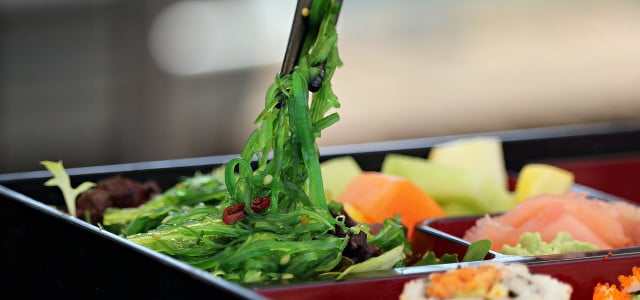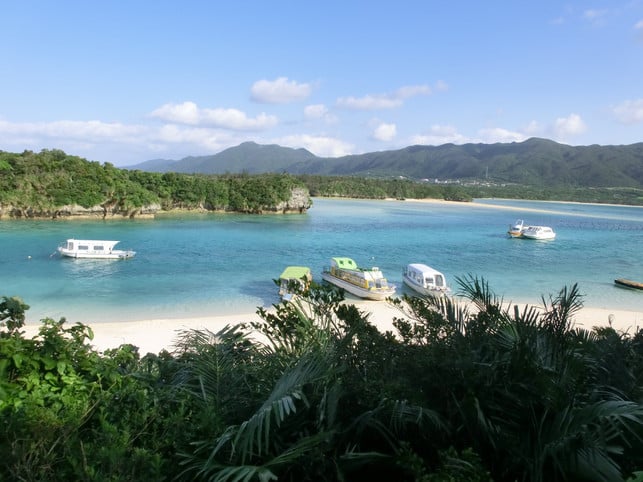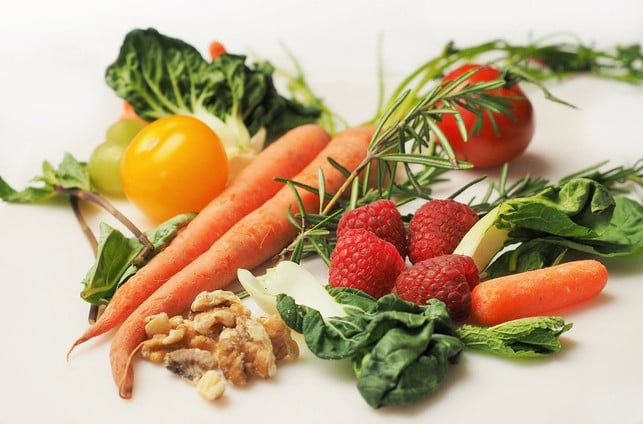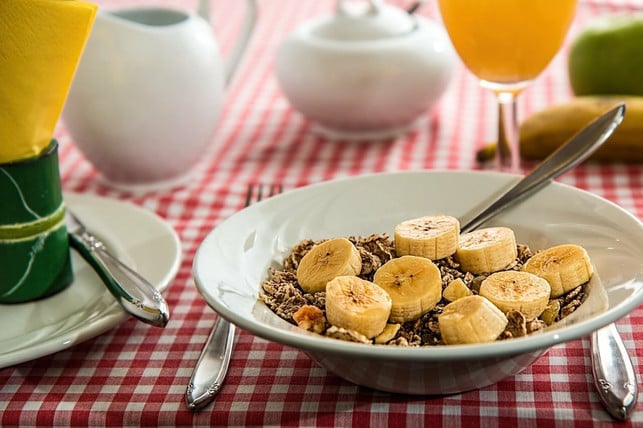
Hara Hachi Bu describes an easy -to -follow diet that not only improve health, but should also extend the lifespan. You can find out what is behind the Japanese teaching here.
Hara Hachi Bu (or: Hara Hachi Bun Me) is a Confucian teaching that advises to fill the stomach only 80 percent. In order to implement Hara Hachi Bu in practice, you don’t have to count calories. Instead, you pay close attention to your feeling of hunger while eating. It is important that you eat slowly and carefully. If you feel full enough right now, so are no longer hungry, but also don’t have a crowded stomach, you should stop eating. See also our article on intuitive food.
Among other things, the eating habits are intended to prevent obesity and associated diseases, promote well -being, increase sexual lust and slow down symptoms.
Hara Hachi Bu is a tradition in Japan

(Photo: CC0 / Pixabay / Yasakimo)
The teaching of Hara Hachi Bu is primarily known in Japan. The inhabitants in particular: inside the island of Okinawa should follow the rule. Their eating habits are also one of the causes of their remarkable average age: in 2020 15 out of 3,000 residents were: at least 100 years old, 171 people were in their nineties. The Japanese island thus expects the so -called “Blue Zones”, in which the residents: supposedly reach a higher average age than elsewhere. However, according to the latest research, these Blue Zones also seem to be those who are often characterized by incomplete residents’ statistics. Sometimes the birth or death dates are missing or are entered incorrectly, which is why the actual age of people cannot always be confirmed without doubt.
The research of the Okinawa Research Center for Longevity Science enables a better insight. They have accompanied over 1,000 inhabitants in a long -term study since 1975: inside the island. The diet on Okinawa was traditionally low in calories, but but nutrient -rich. In addition, residents are still implementing the 80 percent rule of the Hara Hachi-Bu principle today. The study therefore assumes that until the 1960s, people took around 10 to 15 percent fewer calories than the recommended value-without suffering from deficiency symptoms.
However, they found that even in Okinawa the myth from “Fit to old age” did not always apply.
- A third of the hundred -year -old examined came along without great outside help in everyday life.
- The remaining two thirds, on the other hand, were sick, had disabilities or were so restricted in their mobility that they were dependent on support.
Nevertheless, the light calorie waiver seems to be a key to healthy longevity. In the meantime, the Japanese teaching is also becoming better known in Europe.
Hara Hachi Bu: What does science say?

(Photo: CC0 / Pixabay / Dbreen)
Whether and how nutritional methods can make us healthier or can extend our lifespan is also a popular topic in science. There are now studies on Hara Hachi BU that relate primarily to the restriction of calories by the 80 percent principle.
The moderate calorie restriction in particular seems to have a positive effect on the aging process and concerns research worldwide.
A US study from 2016 examined the effects of a lower calorie intake for mood, life and sleep quality as well as sexual lust. For this, the scientists examined: 220 normal weights to a maximum of slightly overweight people who were between 20 and 50 years old. The researchers: Inside, they divided them into two groups: One group should consume about 25 percent less calories a day for two years, the other should eat as usual.
What was to be expected: Subject: Inside from the first group, weight loss first recorded weight loss. It is surprising, however, that they also reported a more relaxing sleep, less inner restlessness and a better sex life. The study thus shows that it is not only healthy for overweight people to easily limit the calorie intake, but also for young to middle -aged normal -weighted people.
Another research group examined more precisely in 2020 how a lower calorie intake on cells of rats affect. The result: the cells of rats, which had 30 percent less calories over nine months, were less affected by ages than animals from the comparison group. The cells were less affected by inflammatory processes. In addition, animals from the first group showed more immune cells. The researchers: Inside, assuming that these results can be transferred to humans.
They conclude that calorie restriction can stop ages and thus also diseases. However, it also depends on what we eat.
Live healthy through Hara Hachi BU and other important principles

(Photo: CC0 / Pixabay / StevePB)
It remains questionable whether the high age average of the Okinawa residents: In the inside is actually only due to Hara Hachi Bu. After all, a major role also seems to play the food with which you fill your stomach. According to National Geographic, it is part of the Okinawesian diet and way of living to eat more than five portions of fruit and vegetables and fish than meat per day. Okinawesian dishes are not only low in calories, but rich in important micronutrients.
For a healthy nutritional and lifestyle, the German Nutrition Society also recommends:
-
Choose whole grain,
- to eat as versatile as possible,
-
To consume animal products only in moderation – pay attention to organic products from sustainable rearing or catch for fish and meat.
- Drinking enough water,
- Reduce sugar and salt,
- Slowly to eat
- and to move regularly.
You can find out more about this topic here: Correct nutrition: 10 nutritional myths uncovered
Hara Hachi Bu: Possible risks
Even if Japanese nutritional teaching has some health benefits and do not prohibit food groups, Hara Hachi BU also harbors risks: the concept could tempt you to have too few calories over a longer period of time and get used to a constant feeling of hunger. After all, it is difficult to estimate when the stomach is only 50 or actually 80 percent full.
Uncontrolled calorie restriction can favor underweight, deficiency symptoms or cravings and the notorious yo-yo effect. If you want to integrate Hara Hachi Bu into your everyday life, you should be careful and continue to listen to your feeling of satiety and hunger.
Read more on utopia.de:
- Sustainable nutrition – you can do that
-
Planetary Health Diet: Researchers develop the perfect nutrition
- Ayurvedic nutrition: the philosophy and basic idea of Ayurveda
Revised by Martina Naumann
** marked with ** or orange underlined Links to sources of supply are partially partner links: If you buy here, you will actively support Techzle\.com, because we will then receive a small part of the sales proceeds. More information.